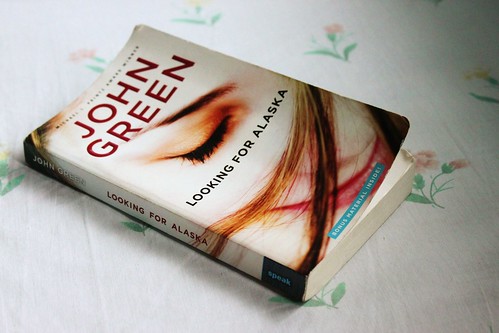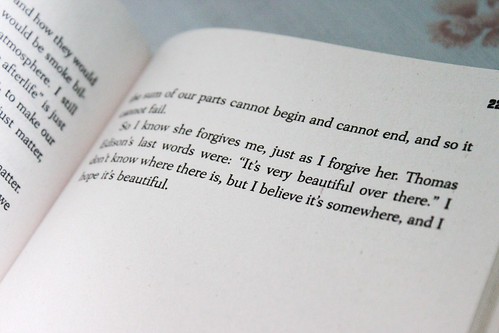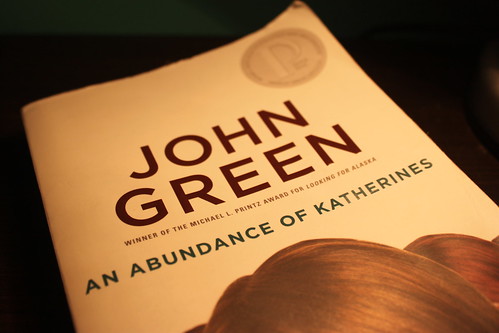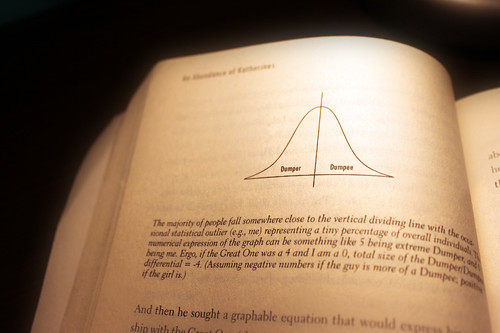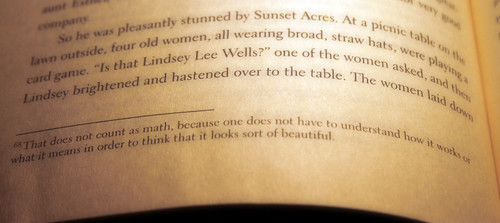Paper Towns1 is a story about a high school senior named Quentin Jacobsen (nickname: Q) who has been entranced by his neighbor, Margo Roth Spiegelman, since time immemorial. Margo Roth Spiegelman is spunky, mysterious, strikingly beautiful and very adventurous. It is easy for someone like Q to confuse his attraction to Margo's enigmatic personality for love and this is precisely what he does.
A few weeks before their high school graduation, Margo shows up in Q's bedroom and takes him on a night filled with adventure (mostly of the mischievous, revenge prank kind). Their little night-out ends with Margo and Q slow-dancing in SeaWorld (which they broke into in the dead of the night) and her whispering the words "I. Will. Miss. Hanging. Out. With. You." in his ear before they part. Expectedly, Margo Roth Spiegelman doesn't show up in school the next day.
When Margo stops showing up to class altogether, Q realizes that it isn't just one of Margo's random disappearing acts. He, together with friends Ben, Radar and Lacey, searches for clues that might lead them to Margo's whereabouts, clues that Q thinks Margo left for him to find.
-
It took me an entire week to re-read this book that by Friday, it's beat-up and quite dirty. I'm a little bit sad about that but I'm extremely happy about the story and its pacing. I quite like it despite the fact that the characters in John Green's body of work are eerily similar to one another. One can easily find similarities in Quentin Jacobsen and Colin Singleton (An Abudance of Katherines) and in Margo Roth Spiegelman and Alaska Young (Looking for Alaska). Aside from that, the book is just great. It's very witty and spot on. I wasn't as articulate as Q or Ben or Radar when I was in high school and I sure as hell wasn't a Margo or a Lacey but I loved and understood the way they all connected.
I especially liked the fact that the book touched on the difference between the way we picture people and the way they really are. In page 282, John Green wrote, "What a treacherous thing to believe that a person is more than a person" and that's totally true. Q didn't really love Margo, he loved his own idea of who she is. We sometimes let ourselves build a castle out of what is essentially a straw house, not because of naïveté but because we all hope for the best, especially in affairs of the heart. Finding out that the person you've been pinning for is actually an asshole may be one of the worst feelings in the world. It's definitely not up there with civil war, nuclear holocaust and famine but heartbreak wise, it comes pretty close to complete spirit wreckage. We can always pick ourselves up from something like that but this book is a good reminder of saving one's self from self-destruction.
I also realized that John Green's novels are always about kids in search of an adventure or something, in general, whether it's to prove a relationship theorem, the Great Perhaps or Paper Towns. I don't know what other readers feel about that but I like it, it's a huge reason why I'm a fan of his writing. I like the hope that the search for something brings. I like the promise of the unknown. I like the pleasure of leaving.
"She'd told me: the pleasure isn't in doing the thing, the pleasure is in planning it......She reads the Whitman and highlights 'I tramp a perpetual journey,' because that's the kind of thing she likes to imagine herself doing. The kind of thing she likes to plan.But is it the kind of thing she likes to actually do? No. Because Margo knows the secret of leaving. The secret I have only just now learned: leaving feels good and pure only when you leave something important, something that mattered to you. Ruling life out by the roots. But you can't do that until your life has grown roots.And so when she left, she left for good."
_______________________________
1Paper Towns are fictitious towns added in maps to serve as copyright traps.


